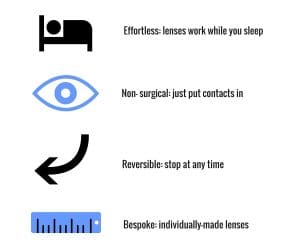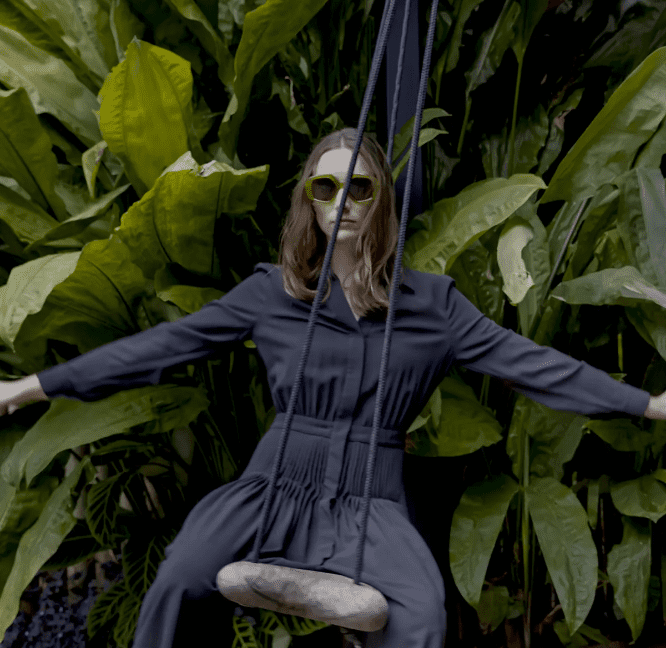Myopia can be slowed down
Myopia is an eye condition that causes the distance vision to be blurred. It typically gets worse over the teenage years and the deterioration can continue even into a person’s twenties and thirties. How thanks to new remedies we can now slow down the progression of this condition and in some cases even stop it completely.
Our Optometrists David and Mark have specific training and experience in myopia control backed up by the practice having technology such as the ZEISS IOL Master to precisely monitor eye growth and myopic progression.
- Research based techniques employed by David and Mark are;
- Advice on lighting levels and spending time outdoors. Three hours a day outdoors or in a room with lighting over 1000 Lumens. Normal room lighting is usually 200-300 Lumens.
- No more than an hour a day using very close electronic devices such as smart phones
- Clever spectacle lenses such as the MiyoSmart lens by Hoya which is claimed to slow myopic deterioration by 60%
- Orthokeratology (Ortho-K) contact lenses- contact lenses which reshape the front surface of the eye. They are worn at night allowing the wearer to see clearer the next day without the lenses in or wearing glasses. Ortho-K is effective at slowing myopia.
- Soft “myopia control” contact lenses. An easy option and often a preferable option for teenagers and children instead of glasses. Soft myopia control contact lenses have been shown to be very effective at slowing myopic progression.
- Atropine Eye Drops; A low doses eyedrop of atropine instilled in the eye at night before bed is very effective at slowing myopia and simple to administer.
What is Myopia?
Myopia (short-sightedness) is an eye condition whereby a patient is unable to see clearly into the distance whilst still holding the ability to see nearby objects clearly. This long-distance vision loss is a consequence of the eyeball elongating, causing a patients central vision to become blurry. Myopia is more than just vision loss, correlating highly with poor eye health, so it is important to maintain regular check-ups after diagnosis.
Visit our Myopia Eyecare Information Page to find out more about myopia.
Myopia Control Treatment
Simple eye formulas prescribed by David effectively slow down the progression of Myopia. These formulas comprise the latest Myopia Control Treatment that works by reducing the growth of the eyeball, therefore slowing further vision loss. Early intervention is the most effective mode of treatment, with the condition most commonly worsening throughout a person’s teenage years.
Orthokeratology
Orthokeratology (Ortho-K) is a treatment that significantly slows myopic progression, whilst also providing temporary visual relief to the patient. This treatment is administered via contact lenses worn only at night to gently reshape the cornea of the eye. Once awake, the patient will be able to see clearly for the remainder of the day without the aid of contact lenses or glasses.
Visit our Ortho-K Information Page to find out more.

Myopia Control Soft Contact Lenses
Soft Contact Lenses give a patient clear long-distance vision when worn whilst simultaneously slowing the progression of myopia. The lenses do so by fully correcting the eye’s central vision, giving the patient clear vision wherever they direct their eyes when worn. This is aided by the lenses lowering the correction of a patient’s peripheral vision which reduces the elongation of the eyeball, subsequently slowing myopic progression.
Visit our Myopia Control Soft Contact Lenses Information Page to find out more.
Pharmaceutical Eye Drops (Atropine and Pirenzepine)
Eye drops are used to reduce further visual reduction but they do not restore perfect vision on their own. Eye drops can be used in conjunction with Orthokeratology or Myopia Control Soft Contact Lenses. However, the long-term side effects and permanent efficacy of eye drops are an ongoing subject of clinical research, with other modes of treatment still required to assist for myopic correction.
Specific Myopia Management Spectacles
Myopia Management lenses visually correct the eye to the same effectiveness as standard spectacle lenses, whilst simultaneously slowing the progression of myopia. These lenses slow the progression of myopia by blurring the peripheral elements on the lens, discouraging eye growth. For patients who are looking to slow myopic progression, we strongly recommend fitting Specific Myopia Management spectacles to your frames rather than standard spectacle lenses.
Why We Do Not Recommend fitting Standard Spectacle Lenses for Myopic Patients
Though standard spectacle lenses effectively assist temporary visual correction of myopia, David does not recommend fitting them to patients with myopia as the lenses do not control the progression of the condition. If your glasses are fitted with Standard Spectacle lenses, do not worry as they do not damage the eye. Rather, research suggests that the peripheral correction of standard spectacle lenses is too strong to control eye growth, so the eye may continue to grow when wearing them. Further research is still required to determine the long-term effects of standard spectacle lenses on myopia.
If you are at all concerned about your prescription, you can Book an Appointment with David or give us a call on (08) 6117 1951 to speak to our friendly staff regarding your spectacles.
What You Can Do to Slow Myopic Progression
In addition to these treatment strategies, simple lifestyle changes can help prevent the development and progression of myopia. Here are some recommendations:
- Take part in outdoor activities
- Remember UV protection
- Keep Digital Devices at a distance
- Ensure you take a break
- Turn on the light
Concerned about myopia?
Book an eye appointment with David
David Shanahan Optometrists utilizes the latest eye-scanning technology from Zeissto measure myopia. The scanner allows David to specifically prescribe Myopia Control Therapy for your eye condition. David also completed additional training to grant him with the certifications to fit orthokeratology contact lenses to his patients.
Early preventative check-ups can detect potential eye problems. A visit to your optometrist every twelve months ensures that your prescription is correct.
To book an appointment with David, call us on (08) 6117 1951 or book online here.



